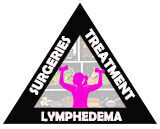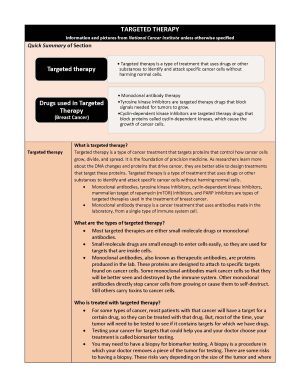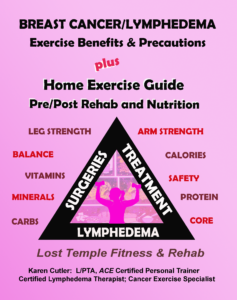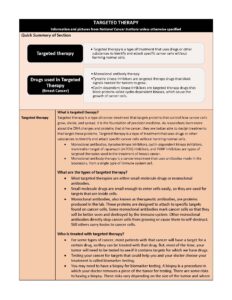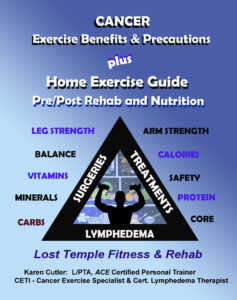What is
Targeted Therapy
Your Body is Your Temple
Research, Resources & Education
Table of Contents
Targeted therapy is a promising cancer treatment that uses drugs to focus on specific molecules involved in cancer growth. It's less toxic than chemotherapy and provides tailored treatment based on patients' genetic profiles. It's the cornerstone of precision medicine and shows great promise in fighting cancer.
Information from the National Cancer Institute unless otherwise specified
|
What is Targeted Therapy?
Targeted therapy is a type of treatment that uses drugs or other substances to identify and attack specific cancer cells without harming normal cells.
- Monoclonal antibodies, tyrosine kinase inhibitors, cyclin-dependent kinase inhibitors, mammalian target of rapamycin (mTOR) inhibitors, and PARP inhibitors are types of targeted therapies used in the treatment of breast cancer.
- Monoclonal antibody therapy is a cancer treatment that uses antibodies made in the laboratory, from a single type of immune system cell.
Targeted Therapy Videos
YouTube Videos that help explain Targeted Therapy.
Disclaimer:
This is for research only and Lost Temple Fitness & Cancer does not endorse any video presented on this website.
It is advised that you ALWAYS CHECK WITH YOUR PHYSICIAN for a proper diagnosis and treatment plan.
Targeted Therapy
Testing
Biomarker Testing
Biopsy
How Targeted Therapy Works against Cancer
Most types of targeted therapy help treat cancer by interfering with specific proteins that help tumors grow and spread throughout the body. They treat cancer in many ways. They can:
One reason that cancer cells thrive is because they can hide from your immune system. Certain targeted therapies can mark cancer cells so it is easier for the immune system to find and destroy them. Other targeted therapies help boost your immune system to work better against cancer.
Healthy cells in your body usually divide to make new cells only when they receive strong signals to do so. These signals bind to proteins on the cell surface, telling the cells to divide. This process helps new cells form only as your body needs them.
But, some cancer cells have changes in the proteins on their surface that tell them to divide whether or not signals are present. Some targeted therapies interfere with these proteins, preventing them from telling the cells to divide. This process helps slow cancer’s uncontrolled growth.
Tumors need to form new blood vessels to grow beyond a certain size. In a process called angiogenesis, these new blood vessels form in response to signals from the tumor.
- Some targeted therapies called angiogenesis inhibitors are designed to interfere with these signals to prevent a blood supply from forming. Without a blood supply, tumors stay small.
- If a tumor already has a blood supply, these treatments can cause blood vessels to die, which causes the tumor to shrink. Learn more about Angiogenesis Inhibitors.
Some monoclonal antibodies are combined with toxins, chemotherapy drugs, and radiation. Once these monoclonal antibodies attach to targets on the surface of cancer cells, the cells take up the cell-killing substances, causing them to die. Cells that don’t have the target will not be harmed.
Healthy cells die in an orderly manner when they become damaged or are no longer needed. But, cancer cells have ways of avoiding this dying process. Some targeted therapies can cause cancer cells to go through this process of cell death.
Some breast and prostate cancers require certain hormones to grow. Hormone therapies are a type of targeted therapy that can work in two ways.
- Some hormone therapies prevent your body from making specific hormones.
- Others prevent the hormones from acting on your cells, including cancer cells.
Draw Backs and Side Effects
Draw Backs
Targeted therapy does have some drawbacks. These include:
- Cancer cells can become resistant to targeted therapy. For this reason, they may work best when used with other types of targeted therapy or with other cancer treatments, such as chemotherapy and radiation.
- Drugs for some targets are hard to develop. Reasons include the target’s structure, the target’s function in the cell, or both.
Side Effects
Targeted therapy can cause side effects. The side effects you may have depend on the type of targeted therapy you receive and how your body reacts to the therapy.
- The most common side effects of targeted therapy include diarrhea and liver problems.
- Other side effects might include problems with blood clotting and wound healing, high blood pressure, fatigue, mouth sores, nail changes, the loss of hair color, and skin problems.
- Skin problems might include rash or dry skin.
- Very rarely, a hole might form through the wall of the esophagus, stomach, small intestine, large bowel, rectum, or gallbladder.
- There are medicines for many of these side effects. These medicines may prevent the side effects from happening or treat them once they occur.
- Most side effects of targeted therapy go away after treatment ends. (Targeted Therapy to Treat Cancer)
Disclaimer: The information in this book/website is for educational purposes only and has been obtained through research, publications and personal experience, and shall not be liable for incorrect information. Any mentioned publications or websites does not imply endorsement. As this industry is ever changing, I urge readers to confirm the information contained in this book/website. The author will not be liable for any injuries sustained from practicing techniques taught or for any typographical errors or omissions.
It is advised that you always check with your medical doctor or physical therapist before starting an exercise program or change in diet.
|
Information and pictures from National Cancer Institute unless otherwise specified |
